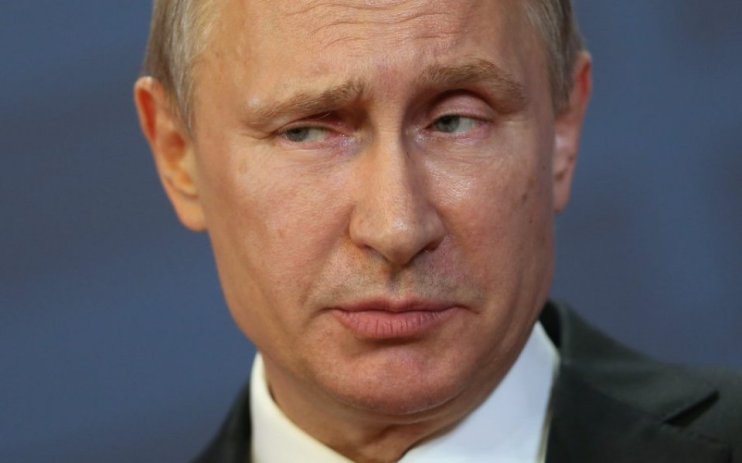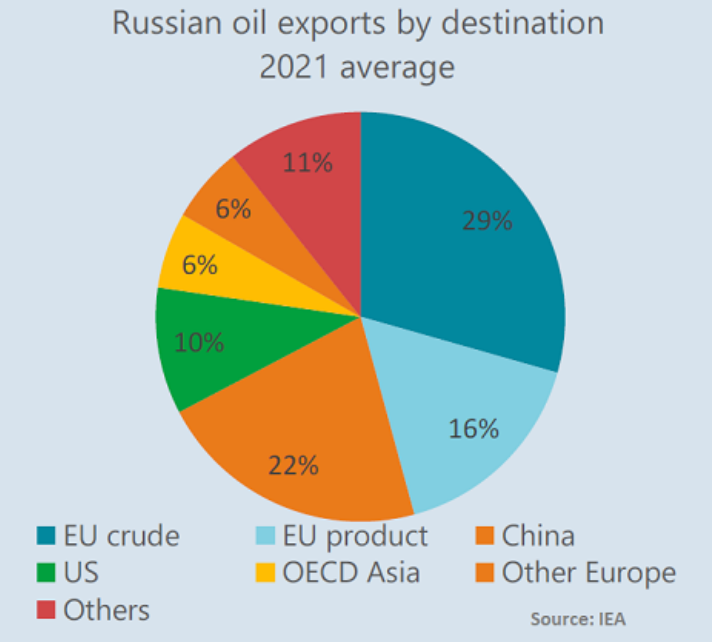EU can’t always get what you want: Hungary stalls progress towards Russian oil ban

Hungary has continued to withhold its backing from a long-proposed European Union (EU) ban on imports of Russian oil, despite talks last night between European Commission president Ursula von der Leyen and Hungarian Prime Minister Viktor Orban.
von der Leyen revealed on Twitter there had been “progress” following discussions with Orban, but that more “more work is needed” before an agreement on an EU-wide embargo on Russian oil can be reached.
The trading bloc is pushing to include a phase-out of Russian oil supplies over the next six months in its sixth package of sanctions against the Kremlin, following the country’s invasion of Ukraine in February.
However, it has had to adopt a more flexible approach to sanctions on energy supplies, with the bloc more dependent on Kremlin-backed fossil fuels than allies such as the US and UK.
While it has followed the White House and Westminster in bringing in measures to cut down Russian coal purchases, it has yet to commit to cutting off oil supplies.
With European countries facing an urgent cost of living crisis amid spiralling energy bills, rebounding consumption demand and fears of supply shortages, multiple member states have established special terms for any upcoming oil embargoes.
Even though the vast majority of the EU’s 27 member states have dropped initial opposition to the plans, Czechia, Bulgaria, and Slovakia are all seeking more time to adapt, and are expected to be given two more years to discontinue purchases of Russian crude.
By contrast, Hungarian Foreign Minister Peter Szijjarto has previously warned that even with the extension, the country could only agree to the measures if crude oil imports from Russia via its pipeline were exempt from the sanctions.
Overall, the bloc is dependent on Russia for over a quarter of its crude supplies, with the EU spending €24.1bn on Russian oil supplies since the invasion, as part of nearly €60bn of fossil fuel purchasing from the Kremlin.
Separate to the oil phase out, it is currently weighing up plans to ban insurers from backing ships carrying Russian fuel supplies.
Bloc scrambles to shore up supplies ahead of looming ban
It is unclear whether the EU could make up the shortfalls in oil supplies with the Organisation for Economic Co-operation and Development estimated to hold 1.5m barrels of oil, while industrial holdings contain an additional 3m barrels.
The International Energy Agency agreed last month to release 60m barrels to lower down prices, while the US has pledged to flood the market with 180m barrels from its reserves.
For context, the EU relies on Russia for 3.5m barrels per day, and is the biggest buyer of the country’s crude supplies, snapping up over half its supplies.
EU nations have been scrambling to shore up fuel supplies amid the possibility of an oil embargo, but news agency Reuters has revealed talks between Germany and Qatar have hit the rocks.
The two countries are at an impasse over the terms of vending liquefied natural gas (LNG), with Germany reluctant to commit to Qatar’s conditions such as 20-year deals, and clauses banning rerouting to other European countries.

Any measures to ban Russian oil would currently need unanimity, despite von der Leyen also suggesting this requirement on key EU policy areas no longer made sense if the EU wanted to be able to move faster.
She told the European Parliament in Strasbourg: “I have always argued that unanimity voting in some key areas simply no longer makes sense if we want to be able to move faster. Or that Europe should play a greater role – for example in health or defence.”
von der Leyen also said that she would be ready to back EU treaty change where needed to deliver on EU citizens’ ideas on the bloc’s future.
As the oil ban hangs in the balance, Brussels has shelved its plans to ban the EU shipping industry from carrying Russian crude.
A proposal targeting shipping that was introduced last week has been dropped by the European Commission following hard lobbying from Malta and Greece, which is home to more than half of the EU flag tonnage.
The proposed shipping ban was seen as a way of making it more difficult for Putin to mitigate the effects of the proposed EU oil ban by transporting crude to other countries around the world.